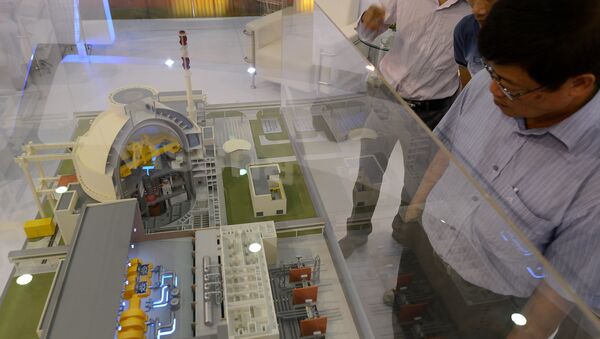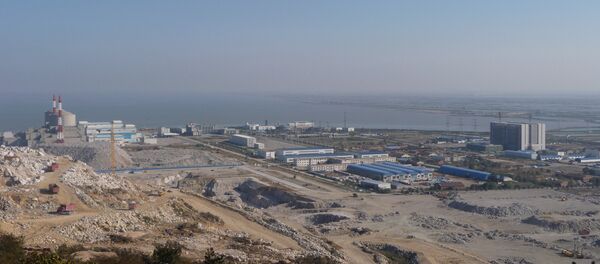Will Vietnam have a nuclear power industry? This is one of the main questions on the agenda of Vietnamese National Assembly’s current session, with many calling it “courageous” that the question is even up for discussion.
According to Vietnam's current nuclear energy plan, drafted in 2009, Russia and Japan were to build the first four out of thirteen planned nuclear reactors.
Those supporting abandoning the project point to the significant slowdown in the annual growth of electricity consumption in the country. When the project was drafted the growth was about 22%, but it is expected to drop up to 8% by 2030.
They claim that Vietnam is now facing economic stagnation and a monetary deficit meaning that the country's mega-projects, drafted in the period of its rapid economic growth, all need to be revisited.
However, the opposite point of view has been expressed by the ex-director of Center for Nuclear Science and Technology of Vietnam Institute for Nuclear Energy Vo Van Thuan in his interview to Sputnik Vietnam.
“Vietnam cannot do without nuclear power, and the proposal to interrupt the realization of nuclear project is deplorable,” Vo Van Thuan said.
He recalled that Vietnam has an obligation to reduce air pollution, including the reduction of carbon dioxide emission at least by 8% by 2030. Nevertheless, Vietnam’s Energy Program provides that in the nearest five years 50% of energy in the country will be produced by coal power plants which annually emit hundreds of thousands and even millions of tons of coal dust and ash into the atmosphere, worsening the greenhouse effect and damaging the environment.
The scientist said that the government continues to pursue the development of renewable power generation technologies such as hydro, wind and solar power stations. According to Vietnam’s National Energy Program, the capacity of power plants based on renewable sources should double.
“The construction cost of wind and solar power plants is very high. Besides, in order to provide a more or less acceptable power generation capacity one solar power plant needs to occupy an area 10 times as wide as one thermal power plant of the same capacity,” Vo Van Thuan said.
He added that actual power output of both wind and solar power plants is too dependent on nature, making it impossible to rely fully on renewable energy sources.
“Only nuclear power can meet the energy needs and ecological security of the country. Relying on nuclear ‘clean’ energy is in line with global trends of 21-st century,” the scientist stressed.





